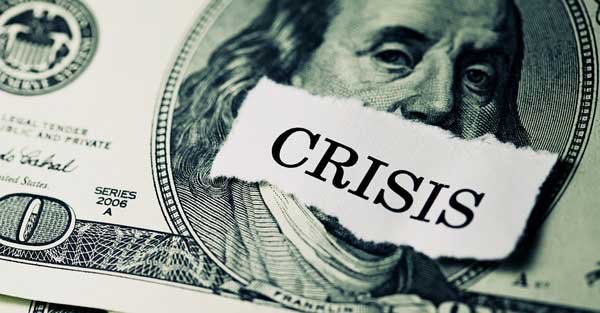On Friday March 15, 2013–just over three years ago–people across the entire nation of Cyprus went to bed believing that everything was OK.
The next morning they woke up to a different reality.
It turned out that their banking system was totally broke. After suffering enormous losses, banks no longer had sufficient liquidity or capital to maintain customer account balances.
People realized immediately that just because you can log in to a bank’s website and see an account balance printed on the screen that doesn’t actually mean that the money is there.
To make matters worse for depositors, the government was insolvent and unable to lift a finger to support the banks.
Plus the deposit guarantee from Cyprus’s central bank wasn’t worth the paper it was printed on.
So in order to save the banking system, Cypriot politicians resorted to the unthinkable– freezing every bank account in the country. It all happened overnight.
This is precisely the sort of thing that happens when a poorly structured banking system meets an insolvent government.
And we should expect more of it. Because three years later, much of the West looks like Cyprus did back then.
Western banking systems are extremely illiquid, and many banks are very thinly capitalized with minimal reserves.
Deposit insurance funds are woefully undercapitalized and lack the financial capacity to guarantee the system.
And the governments who stand behind it all are themselves completely insolvent.
Bear in mind, all of these assertions are backed by publicly available data.
It’s not some wild conspiracy theory to suggest that the governments of the United States, Japan, and most of Western Europe are totally bankrupt.
These are facts. And each government publishes its own financial statements attesting to its insolvency.
It’s not crazy to say that the FDIC is undercapitalized and fails to maintain the amount of reserves that are required by law, let alone “the minimum level [of capital] needed to withstand future crises of the magnitude of past crises.”
This information is published in the FDIC’s own annual report.
And you don’t have to be a radical to review your bank’s financial statements and find, for example, that US Bank maintains cash reserves amounting to just 3.5% of its customer deposits.
Or that Italy’s Unicredit Bank holds cash reserves of just 1.7% of its customer deposits.
These numbers are not even remotely conservative. And they’re all available in the banks’ most recent reports.
Looking at the big picture, when it’s clear that your government is broke, your deposit insurance fund is undercapitalized, and your bank is hazardously illiquid, it seems obvious that you shouldn’t hold 100% of your savings in that banking system.
There are a multitude of solutions to reduce this risk.
One option that we have discussed is opening an account at a liquid, well-capitalized foreign bank located in a jurisdiction with no debt.
Banks in Asia tend to have extremely high levels of liquidity and hold generous, conservative reserves to safeguard their customer deposits.
An even easier option is to hold physical cash; buy a safe and start making withdrawals from your bank account.
Even if you’re completely skeptical about everything you’ve just read, you won’t be worse off for having cash instead of bank deposits.
There’s very little consequence to taking action. But the consequences of NOT taking action can be substantial.
Learn from Cyprus. Don’t take it for granted that you’ll go to bed tonight and everything in the financial system will be fine tomorrow morning.
When the data and risks are this obvious, everything can change very quickly.








